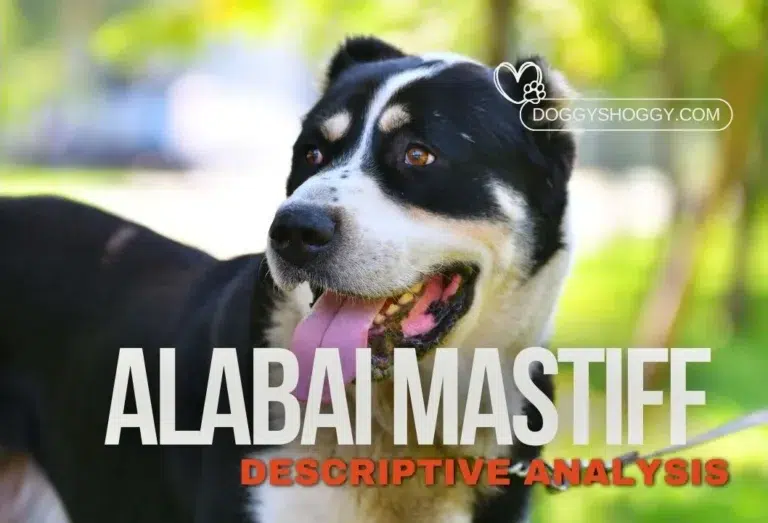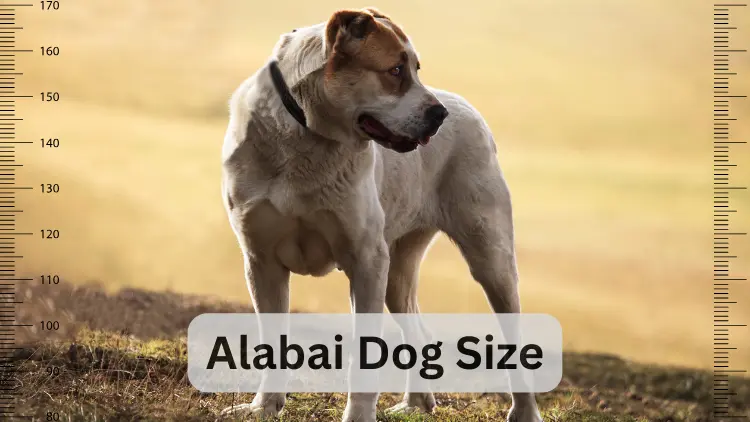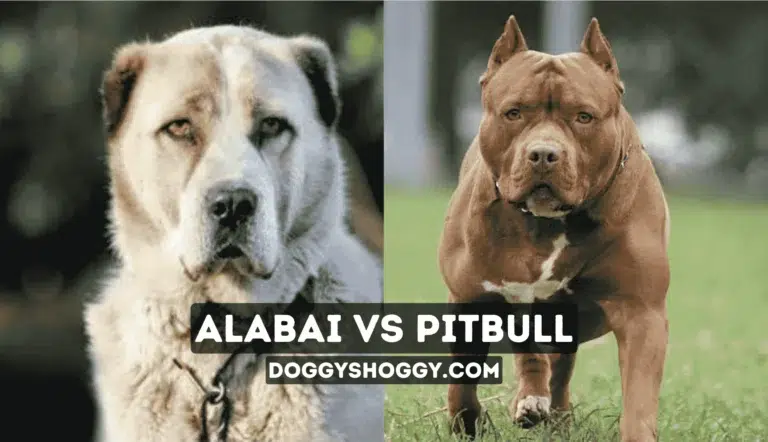Alabai Dog Teeth: Alabai’s Oral Health Care
Alabai dog teeth are solid and rigid because Alabai dogs have an essential job: protecting things! Their teeth help them do different tasks like biting, tearing, and chewing. They have unique teeth in the front for biting and cleaning, pointy ones for grabbing things, and flat ones in the back for chewing food. Caring for their teeth is super important, like brushing them regularly and giving them things to chew on. This helps keep their teeth healthy and strong so they can keep doing their important job of keeping us safe and happy!
Table of Contents
Alabai Dog Dental Anatomy: Understanding the Basics

The dental anatomy of Alabai dogs plays the crucial role in their overall health and well being. Understanding the basics of Alabai Dog Teeth structure can help ensure proper care and maintenance.
Alabai dogs, like all canines, have a set of teeth designed for specific functions. They possess incisors, canines, premolars, and molars, each serving different purposes. Incisors are used for grooming and nibbling, while canines aid grasping and tearing. Premolars and molars help grind and crush food for digestion. This dental arrangement reflects their evolutionary adaptation to their roles as working and guardian dogs.
Alabai dogs are known for their strong jaws and powerful bite force, which is reflected in their teeth structure. Their teeth are adapted for their historical roles as guardians and protectors, with sturdy canines and molars that enable them to bite and hold onto prey or intruders effectively. This robust dental structure underscores dental care’s importance in maintaining their health and functionality.
Alabai Dog Teeth Structure
Alabai dogs, like all canines, have a set of teeth designed for specific functions. They possess incisors, canines, premolars, and molars, each serving different purposes. Incisors are used for grooming and nibbling, while canines aid grasping and tearing. Premolars and molars help grind and crush food for digestion.
Unique Features of Alabai Dog Teeth
Alabai dogs are known for their strong jaws and powerful bite force, which is reflected in their teeth structure. Their teeth are adapted for their historical roles as guardians and protectors, with sturdy canines and molars that enable them to bite and hold onto prey or intruders effectively.
Growth and Development
Alabai Dog Teeth in the puppies start developing their baby teeth at around 3 to 4 weeks old, eventually replacing permanent teeth as they mature. Proper dental care during this growth phase ensures healthy adult teeth development and prevents potential issues later.
Importance of Dental Care for Alabai Dog Teeth
Maintaining good dental hygiene in Alabai dogs is essential to prevent dental problems are such as plaque buildup, tartar formation, gum disease, and tooth decay. Regular brushing, dental check-ups, and providing appropriate chew toys can contribute to their oral health and overall well-being.
Maintaining Optimal Oral Health in Alabai Dogs
Ensuring optimal oral health in Alabai dogs requires a proactive approach and consistent care routine. Here are some guidelines to help you keep your Alabai Dog teeth and gums healthy.
Regular brushing the cornerstone of dental care for Alabai dogs. Brushing Alabai Dog teeth daily or at least several times a week helps remove plaque and prevent tartar buildup. Use a dog specific toothbrush and toothpaste to gently clean their teeth and gums, particularly the back molars where plaque accumulates.
In addition to regular brushing, dental check ups with your veterinarian are essential to monitor your Alabai’s oral health. Professional cleanings may be necessary to remove the stubborn tartar and prevent gum disease. Your veterinarian can also identify emerging issues and provide appropriate treatment before they escalate.
Regular Brushing
Brushing your Alabai Dog teeth regularly, preferably daily or at least several times a week, is the cornerstone of dental care. Use a dog specific toothbrush and toothpaste to gently clean their teeth and gums, paying attention to the back molars where plaque accumulates.
More Info: Alabai Dog Colors
Dental Check ups
Schedule regular dental check ups with your veterinarian to monitor your Alabai Dog Teeth and Alabai’s oral health and address any emerging issues promptly.
Balanced Diet
Provide your Alabai with a balanced diet rich in nutrients essential for dental health, such as calcium and phosphorus. Avoid feeding them excessive the sugary treats or human foods that can be contribute to dental problems.
Chew Toys and Dental Treats
Offering chew toys and dental treats specifically designed to promote the dental health can help keep your Alabai’s teeth clean and strong. These items encourage chewing, which aids in plaque removal and stimulates gum health.
Common Dental Issues in Alabai Dogs and How to Address Them

Despite proper care, Alabai dogs may still experience dental issues. Awareness of common problems and how to address them is crucial for maintaining oral health.
One of the most common dental issues in Alabai dogs is the accumulation of plaque and tartar on their teeth. This buildup can lead to gum inflammation, bad breath, and gum disease if left untreated. Regular brushing and professional cleanings can be help prevent and address this issue.
Gum disease, or periodontal disease, is the prevalent condition in Alabai dogs, characterized by inflammation and infection of the gums. It result in tooth loss and even the systemic health problems if the bacteria from the mouth enter the bloodstream. Early detection and the treatment are vital in managing gum disease and preventing complications.
Plaque and Tartar Buildup
One of the most common dental issues in Alabai dogs is the accumulation of plaque and tartar on their teeth. This buildup can lead to gum inflammation, bad breath, and gum disease if left untreated.
Gum Diseases
Gum disease, Or periodontal the disease, Is a prevalent condition in Alabai dogs, characterized by inflammation and infection of the gums. It result in tooth loss and even systemic health problems if itsbacteria from the mouth enter the bloodstream.
Tooth Decay
Alabai dogs are susceptible to tooth decay, mainly if their diet includes sugary foods or their dental hygiene is neglected. Decayed teeth can cause pain, discomfort, and difficulty eating, impacting their overall quality of life.
Tooth Fractures
Accidental trauma or chewing on complex objects can lead to tooth fractures in Alabai dogs. Fractured teeth can be painful and may be require veterinary intervention, including extraction or root canal therapy, to prevent further complications.
Best Practices for Alabai Dog Teeth Care: Tips and Techniques

Maintaining optimal dental health in Alabai dogs requires a combination of preventive measures and proactive care. Here are some best practices to ensure your Alabai’s teeth stay healthy and strong.
Start Early
Introduce dental care routines to your Alabai puppy as early as possible to familiarize them with tooth brushing and oral examinations. Positive reinforcement and patience can make these activities enjoyable for your furry friend.
Use Proper Tools
Invest in quality dental care products designed specifically for dogs, including toothbrushes, toothpaste, and dental chews. Avoid to using human toothpaste, as it may contain the ingredients that are harmful to dogs if swallowed.
Monitor Oral Health
Regularly inspect your Alabai’s teeth and gums for signs of dental problems such as discoloration, swelling, or bad breath. Early detection allows for prompt intervention and prevents issues from escalating.
Professional Cleanings
Schedule professional dental cleanings with your veterinarian at least once yearly or as recommended based on your Alabai’s needs. Veterinary professionals have their expertise and tools to perform thorough cleanings and address underlying issues.
Bottom Line
Proper dental care for your Alabai dog is essential for their health and well-being. By following preventive measures, addressing common dental issues promptly, and implementing best practices, you can ensure that your furry companion enjoys a lifetime of healthy teeth and gums.
10 Useful and Unique FAQs with Answers
How often should I brush my Alabai’s teeth?
Ideally, you should brush your Alabai’s teeth daily or at least several times a week to prevent plaque and tartar buildup.
Can I use the human toothpaste to brush my Alabai’s teeth?
No, you should use toothpaste specifically formulated for dogs, as human toothpaste may contain ingredients that are harmful to them.
What are some signs of dental problems in Alabai dogs?
Signs of dental issues include bad breath, swollen or bleeding gums, discolored teeth, and difficulty eating.
How can I prevent my Alabai from developing tooth decay?
Avoid feeding your Alabai sugary treats and maintain a balanced of diet rich in nutrients essential for dental health.
Are any chew toys specifically designed to promote dental health in Alabai dogs?
Yes, there are various dental chews available that can help clean your Alabai’s teeth and stimulate their gums.
Can gum disease in Alabai dogs lead to other health problems?
Yes, untreated gum disease can lead to systemic health issues as bacteria from the mouth enter the bloodstream.
How can I help my Alabai puppy get used to tooth brushing?
Start slowly and use positive reinforcement to make tooth brushing a positive experience for your puppy.
Are there any dietary supplements that can improve my Alabai’s dental health?
Certain supplements containing ingredients like probiotics or enzymes may support dental health, but consult your veterinarian before adding them to your Alabai’s diet.
Should I provide my Alabai with raw bones for dental health?
While raw bones can help clean your Alabai’s teeth, they should be given under supervision to prevent choking or tooth fractures. Alternatively, consider providing dental chews or toys designed to promote dental health.






